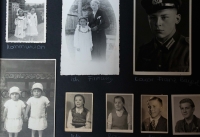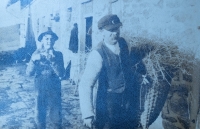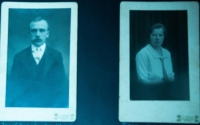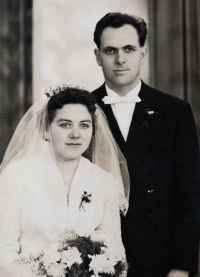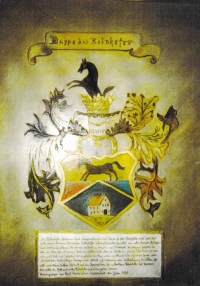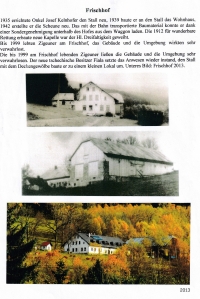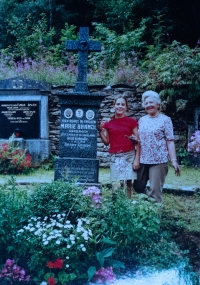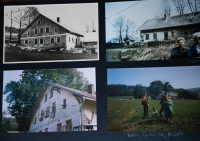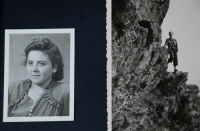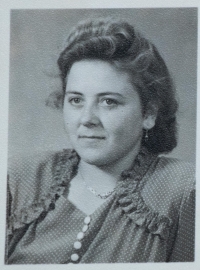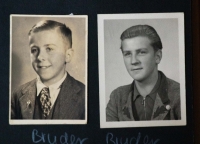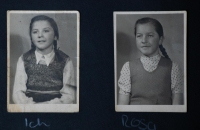What I hated the most was the sign saying: “No transport of Germans and dogs!”

Download image
Franziska Krampfl was born on 14 May 1931 in Hojsova Stráž (Eisenstrass in German) and spent her childhood in the municipality of Frishwinkel (Brčálník today). She comes from a family of royal freemen who had enjoyed a number of rights and privileges since the Middle Ages and even had their own coat of arms. She grew up on the Frischhof family farm and started school in 1937 while it was still Czechoslovakia, but even then they didn’t learn Czech, since there were no Czechs in the surrounding area. The Second World War impacted the region mostly by draining it of men, partially supplemented by foreign forced labour. However, her father, Josef Kelnhofer, was not required to enlist as he was proclaimed an essential person for economic reasons. In the last months of the war, Franziska remembers the transports of concentration camp prisoners and German refugees from the eastern regions. After the war the barracks closed to the farm were occupied by the Czechoslovak Army and the rumour started spreading that Germans would be expelled. In response, the Kelnhofers began moving their belongings across the border to neighbouring Bavaria. In May 1946, they were among some of the first to be deported via the Alžbětín (Eisenthal) camp, because the barracks commander was interested in the farm. Franziska’s first visit to Šumava following that was at the end of the sixties. She comes back there to this day and tends to her grandparents’ grave in Hojsova Stráž.


